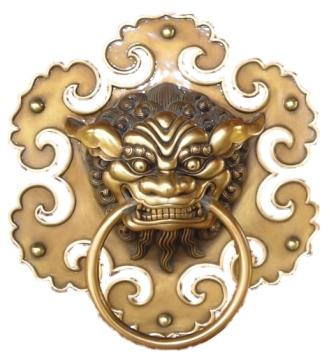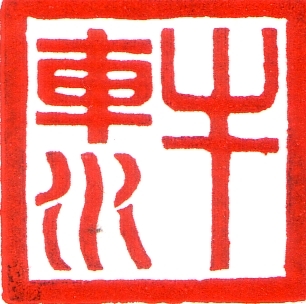 Adrian Long, Singapore Adrian Long, Singapore
Singapore when Chinese migrants arrived in Singapore. The temples they founded served religious, social and cultural needs and many of the temples continue to exist and to function today.
The development of Taoism in Singapore is interwoven with the social and economic development of Singapore. In the last few decades, the economic development of Singapore has brought about great improvements in citizen’s living standard; Singaporeans have access to education and enjoy economic and career advancements. Many professionals developed a highly global worldview and pursue business opportunities in both Asian and Western economies.
Taoism in Singapore has responded to these social changes and continues to be relevant in people’s lives even in the lives of western educated Chinese Singaporean professionals. In this interview, we show an example of this group of Taoist; Mr. Adrian Long, a Taoist who is an IT professional and entrepreneur.
In Singapore, many Chinese are born into Taoist families but what motivated you to learn more about Taoism?
I was born into a very traditional family in which my grand parents were devoted Taoist and has very tight link with the Hainanese clans and association. During my childhood days, it was just praying from one temple to another and the only thing I enjoy most was the event was always filled with people. Unfortunately, it did not at that time occur to me that I actually a Taoist as I hardly get someone to explain to me about Taoism. Since then, I always registered myself on any forms that I am a Buddhist.
Strangely, both my parents were from missionary schools where Christianity was the main focus during their school days. It was during my primary school days, and in the influence of my aunt which I chanced to attend churches services on weekends. However, the stays were very short and praying to Taoist gods still hold very tightly in my heart. Then it was back to temple again praying primarily to Goddess of Mercy, 观音.
My interest to learn more of Taoism arose after I got to know my wife, and with the influence of my father-in-law I volunteer my time with the Lor Khoo Chye Sheng Hong Temple. It was at that moment that I began to read more about the various gods and Taoism. The main thing which motivated me to want to know more of the religion came from the rich cultural ties which Taoism brings. It also brings harmony not only to human, but involves earth, the sky and even the departed relatives.
How and where did you find information about Taoism?
Mainly from books from the library or book shops. Another source of information is from some of the residential Taoist priest and master in which I will seek their explanation when I am in doubts.
What are your main discoveries? For example, what was the most significant information or perspective you discover?
During my early years, I always see Taoism with mystery and associated Taoism to superstitious practiced by priests and older folks.
As I got myself more towards this religion, I discovered that Taoism promotes harmony with nature and influence man way of life through self-cultivation, freedom and the search for balance between one doings, the nature and the earth at large.
Taoism has also brings out the best and at the same time enhance our rich traditional Chinese culture through art, literature, philosophy and architecture.
Interestingly, Taoism is strongly influenced by Chinese folk religion, and Taoist gods were historical beings who had displayed exceptional powers during their lifetimes. These Taoist gods have since influencing man day-to-day activities including filial piety and dealings to people in the World.
The Tao Te Ching is another discovery for me. While I begin to appreciate this master piece of work by Lao Tze, 老子, in which the Tao Te Ching, 道德经, was written during the Warring States Period, does carry some meaning practices and ideas for human kinds to deal with their day-to-day business, life and many more.
We may not need to attain immortality, but it is important for us to appreciate harmony and a way for humanity to end strife and suffering like what other religions promote.
You made a pilgrimage to China. What made you do so and what did you gain from it?
Well, it was through lots of encouragement from our Chairman of Taoist Federation of Singapore Mr Tan Thiam Lai, 陈天来, that I finally decided to make the pilgrimage to Long Hu San, 龙虎山, in China.
For the next couple of months after I put in my registration form for “Chuan Du” ceremony, Long Hu San became my interesting topic of research. I went through numerous searches via the web and slowly began to know more of “Zhen Yi Pai”, 正一派, - the Southern Taoism School, the history of Long Hu San and importantly the founder - Master Zhang Daoling, 张道陵.
The happiness comes from the opportunity to get a certificate from Long Hu San and besides I am proud to even tell man in the street that I am officially a Taoist.
How has your learning about Taoism influence your perspective about your Chinese cultural heritage?
Taoism has made me the importance of retaining our rich Chinese Cultural heritage. It was through Taoism that I began to understand more about Feng Shui study, 风水学, and how people actually to strike a balance to achieve harmony in any building which we carry out our day-to-day activities.
Ancestor worship takes another interesting stage in life, in which I felt more important these days to be able to attend ritual ceremony and praying to decreased family members during festive occasions. Through this action of mine, I hope to cultivate kinship values like filial piety, family loyalty and continuity of the family lineage to my next generation.
Has it change the way you relate to society?
These days, I have realized the importance of other people feelings and every action I carry out I have to consider the harm which may occur to the rest of the people in the society at large.
Open arms to receive any friends and forgive those who have hurt me.
In recent years, Taoism has attracted many English educate professionals and even expatriates as evidence in the number of people who turn up in Taoist event. What will you say to people who still think of Taoism as associated to elderly population?
Have an open mind and join some structured Taoism classes, slowly understand the rich cultural contents, which will really change your mind towards this religion.
Arian’s professional background:
Adrian brings with him more than 18 years of experience in various info-communication and logistics related industries. Currently as the General Manager and Founder of V3 TeleTech Pte Ltd, he is responsible for the development of location-based business for the logistics and transportation sector.
Adrian graduated with a BSc (Hons) degree from the University of London and also holds a post graduate Diploma from the Chartered Institute of Marketing (United Kingdom).
Adrian's foray in Electronic and Mobile Commerce computing started when he joined Singapore Network Services (now known as Crimson Logic Pte Ltd), where he was involved in the development of various E-Commerce supply chain and logistics applications. Prior to starting V3 TeleTech, he was with Eon InfoTech, responsible for developing the company business in the mobile and wireless arena for the logistics, hospitality, property/construction, financial and education sectors for the Asia Pacific region. In his earlier career, Adrian has also held several positions with an engineering firm, where he oversaw the entire business unit for educational training, medical and hospitality products for both Singapore and Asia Pacific regions.
Related Articles:

|

